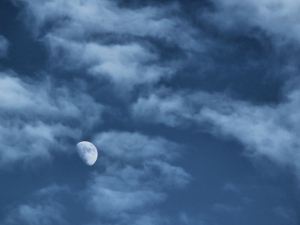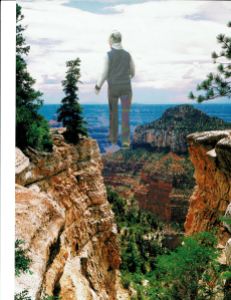 I’ve spent many years barreling along in very predictable ways. One of my life-long habits exhausts me more than the others: Without thinking, in the span of one afternoon, I nag Laura to track her spending, strongly suggest to Howard that our condo board hurry to place a lien on a past-due condo, and email a friend to suggest that she look at a situation in her life from a specific perspective that makes sense to me.
I’ve spent many years barreling along in very predictable ways. One of my life-long habits exhausts me more than the others: Without thinking, in the span of one afternoon, I nag Laura to track her spending, strongly suggest to Howard that our condo board hurry to place a lien on a past-due condo, and email a friend to suggest that she look at a situation in her life from a specific perspective that makes sense to me.
It’s exhausting to try to keep tabs on so many people, and I am tired of being so disrespectful to others in the guise of helping. (Obviously I want to continue to be present to others in ways that are indeed helpful, but micromanaging other’s lives has a totally different feel to it.)
It all comes down to making the choice to step out of my usual rut of telling people what I think they should do and then choosing not to mettle in their business. Problem is, I have to do that over and over again within the span of each day.
It feels like a huge leap to imagine relating in a new, less controlling way on a regular basis. Am I up to making such a drastic change? What if 62 years of habit it too strong to turn away from?
Churning, I brewed a second cup of tea and sat down to talk to Howard, my engineering husband.
That is where Newton’s first law of motion entered the conversation. Newton, Howard explained, said that an object—me—has a natural tendency to continue to do what I am doing—resisting change in my state of motion…
…unless acted upon by a force.
In other words, by habit I am sailing along with ease, navigating life in the speed and direction I’ve always been going. Little effort is required to steer. However, when I want to make a course correction, something bold is required of me.
It’s possible, but dangerous and difficult, to try to make a sudden course correction. Turning while going full speed ahead usually results in either a crash or seriously overshooting my goal.
Its far easier to make this course correction by slowing down first. Slowing down means opening up the moment that got me to the point where I am tempted to react out of my old rutted ways. What was happening inside me just before the sparks started flying? How about the moment just before that? The earlier I can slow myself down, the easier it is to access my intuition and spirit, make choices to overcome the momentum, and make a choice to step outside of my old course. This would allow me to make a fresh and new choice more in line with my values.
Changing course mid-stream is only half the battle, as Newton’s law is also in effect when I am at rest, docked at the shore. At that point, there is great inertia that must be overcome in order to get me to move at all. I know the stuck feeling of sitting in meetings, knowing that something is happening, in me or in the room, that feels off, knowing that I should ask a question or share my perspective. Too often the inertia is strong, and I remain silent. There are lots of reasons for my inertia—I don’t want to slow down the meeting, I’m timid around a particular person, I fear I would be a pain in the butt to voice the question, or I don’t want to speak when I am confused rather than fully clear.
All those are real feelings. They are inner voices and fears to notice, but not always to direct my behavior. I need to reach down deep inside me to find the spirit force that remembers the responsibility of my partnership in the task at hand, take the risk, and respectfully speak.
I need to make these course corrections personally, for sure. But this moment in our nation’s history where we are so deeply divided and confused, the momentum behind our nation’s ship is powerful in places where we are barreling along full-speed ahead like we’ve done for generations or mired in the muck unable to move at all in places where she is stuck. Everyone is needed at this moment in our nation’s history—all hands-on deck so to speak—ready to step out in new and life-giving ways. In our personal lives (we need to start there/a great practice place) and in our public lives, this requires us all to slow down and respectfully take risks that make the choice for love, justice and equity for everyone and all of creation. Each day.
Sometimes a good engineer, with a little help from Newton, is the best spiritual director.







